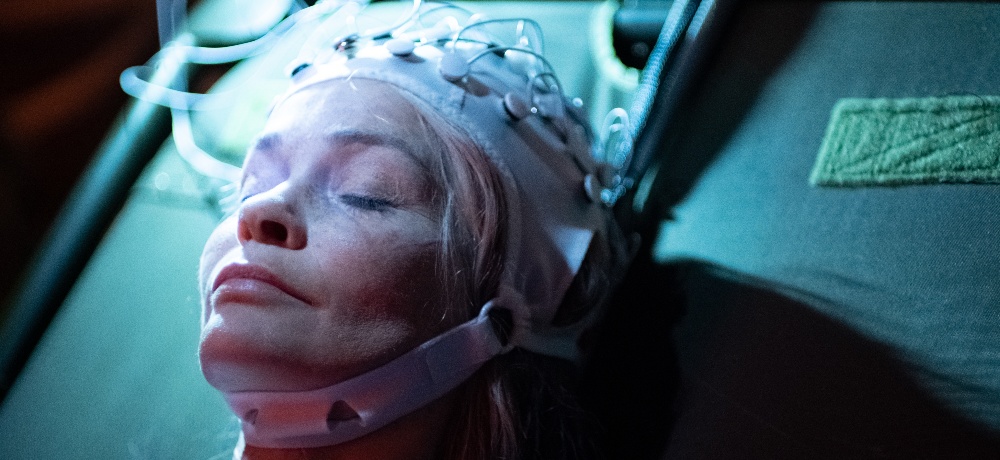


Director Neill Blomkamp has given us a unique mixture of films, one great, one terrible and one right down the middle. District 9 was a sharp, socially conscious horror flick that achieved "instant classic" status. Elysium was an effective riff on class warfare. And Chappie lacked heart.
So where does Demonic rank among Blomkamp's oeuvre? The generic title would have you believe this is a generic movie, which it is. Despite moments of indelible craft, Demonic is closer to Chappie than District 9. The film is a mashup of demons, possessions, metaphors and sanatoriums that ends up being rather dull, uninspired.
The best thing the film has going for it is its heady concept, the idea that you can enter someone else's dreams through a virtual headset. The virtual world adds a kick to Blomkamp's script--the real-world portions can't help but feel flat by comparison, and you spend most the runtime waiting for the next volumetric mind-fuck. For every second that we spend on earth, we lose a second in a simulation where the possibilities are endless, the demons realistic and the textures dreamlike.
What's on screen will likely please fans of Freud (or those who read into psychopathology) more than it will horror buffs. It's not a good sign when a horror flick spends the first 30 minutes on a heroine's mommy issues, when it should be building tension. It follows Carly (Carly Pope) as she copes with her past, her mother's (Nathalie Boltt) horrible behavior haunting and shaping her as she tries to move on, to escape the demons of Freud's "Trauma Theory." She moves to the middle of nowhere, where no one can find her. But her mother is still with her...whether she knows it or not.
When she falls asleep at night, her mother appears in her dreams, sitting on a bed in her childhood room. She wakes up in a nervous sweat, then goes about her day as if nothing happened, driving to work and meeting up with friends. She eventually has to face her mother head on, though, as a research facility called Therapol coaxes her into a therapeutic experiment, one that involves entering her mother's dreams via simulation. What could possibly go wrong?
The simulation takes her to an empty sanatorium, alone in a wheat field, where demons have taken her mother hostage. Supporting characters add color to this exorcism, particularly Chris Martin as the heroic Martin, as well as the lovely Sam (Kandyse McClure), always ready with a glass of wine.
However, the film loses sight of what matters. The characters aren't the calling card-- that's found in the three-dimensional, video game-style VFX. As Carly sifts through her mother's dreams, it's scary because the VR abides by dream logic, placing a random portal in a regular bedroom, or a dark shadow in an empty field. Blomkamp isn't going for realism here; instead, he uses glitches to remind us that the whole world could come crashing down at any moment, and that technology isn't where it needs to be to perform such life-altering procedures. How ironic, then, that it should be the most reliable thing in the movie.
Movie Score: 2/5